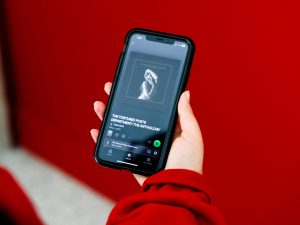 Brock University offers suggestions for keeping private data and devices safe while working and learning remotely.
Brock University offers suggestions for keeping private data and devices safe while working and learning remotely.Events of the past few years have led to an increase in the number of people working and learning remotely. This rise in personal computer use has driven a corresponding increase in cybersecurity incidents.
Brock University’s Information Technology Services team encourages employees and students to review and implement the 10 tips below to help keep their personal information safe.
Use antivirus software — Prevent malware from compromising personal work and the University’s systems by equipping computers with antivirus software.
Make sure computers systems and programs are up to date — Ensure operating systems are running the latest version and enable automatic updates. If Brock’s system asks to install updates, do it as soon as possible.
Secure privacy with a VPN — A virtual private network (VPN) offers a connection that is encrypted and secured. VPN can help protect against digital eavesdropping even when on public Wi-Fi.
Access secured websites — A secured website begins with ’https’ rather than ’http.’ The ’s’ in the address is an indication that the site uses a secured encryption web protocol to protect the confidentiality of online activities or transactions.
Avoid screen oversharing — During online meetings, be cautious when sharing the screen. Close windows that are not meant to be shared. While an accidental sharing of information can be awkward, it’s also a privacy issue.
Beware phishing scams — Phishing scams aimed at stealing personal details and login credentials are regularly sent to work emails. Do not open emails with suspicious links or attachments. Suspected phishing emails can be forwarded to itsecurity@brocku.ca
Enable automatic locking — Lock the computer when not next to it. If a computer needs to be left temporarily unattended at a co-working space, coffee shop or even one’s home office, automatic locking will protect it.
Backup data frequently to OneDrive or SharePoint — Backups protect against human errors, hardware failure, virus attacks, power failure and natural disasters. Backups can help save time and money if these failures occur.
Secure home routers — Cybercriminals look to exploit default passwords on home routers because not many people bother to change it, which leaves their home network vulnerable. Changing a router’s password to something unique is a simple step in preventing cybercriminals from accessing home devices.
Use multifactor authentication — Multifactor authentication provides an extra layer of security to keep hackers from accessing accounts.
Questions about staying safe while working or learning remotely can be emailed to itsecurity@brocku.ca








